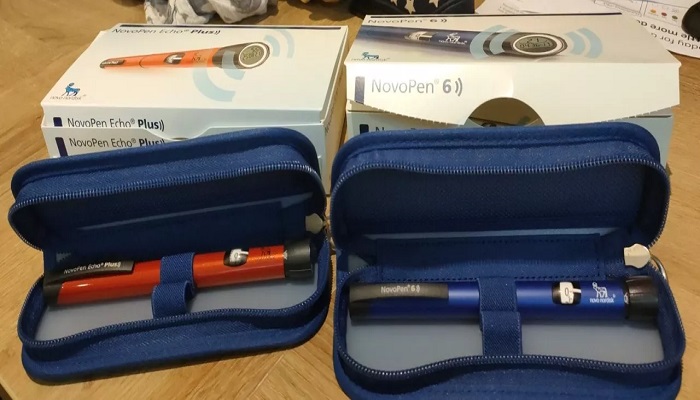Health
Scientists Unveil Smart Insulin That Adapts in Real-Time to Blood Sugar Levels

- Scientists have developed “smart” insulin that reacts to blood sugar changes in real-time, potentially revolutionizing type 1 diabetes treatment.
- This new glucose-responsive insulin could reduce the need for frequent injections and lower the risk of blood sugar fluctuations.
- Significant funding has been awarded to accelerate the development and trials of these innovative insulins, aiming to ease the daily burden of managing type 1 diabetes.
Scientists have made a game-changing breakthrough in the treatment of type 1 diabetes by developing a “holy grail” insulin that can adjust to shifting blood sugar levels in real time. This breakthrough has the potential to change the lives of millions of people living with the condition around the world.
Currently, people with type 1 diabetes must take synthetic insulin up to ten times each day to survive. Constant fluctuations in blood sugar levels can cause a variety of physical health problems, both short- and long-term, while the continual fight to maintain stable levels can have a negative impact on mental health.
Now, researchers have developed a treatment that experts believe may be as close to a cure for type 1 diabetes as medication therapy can get: a smart insulin that remains inactive in the body until it is required. Teams from the United States, Australia, and China have successfully developed novel insulins that mimic the body’s natural sensitivity to fluctuating blood sugar levels, reacting instantly in real time.
Traditional insulin’s function is to stabilize blood sugar levels when injected, but their effects are often transitory, so patients frequently need to inject more within a few hours.
However, the newly created glucose-responsive insulins (GRIs) only get activated when blood sugar levels reach a particular threshold, hence averting hyperglycemia. Once blood sugar levels fall below this level, insulin becomes inactive, lowering the risk of hypoglycemia (low blood glucose). Experts anticipate that in the future, people may only need to be given insulin once per week.
The scientists behind these smart insulins have received millions of pounds to accelerate their research. This funding is part of the Type 1 Diabetes Grand Challenge, a collaboration between Diabetes UK, JDRF, and the Steve Morgan Foundation to spend £50 million in cutting-edge research to find innovative treatments for type 1 diabetes.
Six research studies investigating various forms of smart insulins have received nearly £3 million in funding. These include teams from Stanford University in the United States, Monash University in Australia, and Zhejiang University in China. Their goal is to speed up development and start trials as soon as possible.
Each study aims to improve smart insulin so that it acts faster and more precisely, potentially alleviating much of the stress of controlling type 1 diabetes and lowering the risk of long-term problems. Four of these projects are solely focused on testing GRIs.
Another project is aimed at creating a new ultra-fast, short-acting insulin. Even the fastest insulins on the market now have a delay between delivery and the onset of their action on blood glucose. This delay can cause blood glucose levels to rise to dangerous levels before the insulin starts to operate.
There is also a need for quicker insulins to improve the performance of insulin pumps and hybrid closed-loop technology, which rely on stored insulin to react in real time to changes in blood glucose levels.
The sixth research is investigating a protein that combines insulin and glucagon, another hormone. While insulin helps to reduce blood glucose, glucagon causes the liver to release more glucose when levels are too low. Combining both hormones in a single formulation may aid in maintaining stable blood glucose levels by preventing both highs and lows.
“The funded six new research projects address major shortcomings in insulin therapy,” said Heise. “Therefore, these research projects, if successful, might do no less than heralding a new era in insulin therapy.”
Rachel Connor, the director of research partnerships at JDRF UK, said: “While insulin has been saving lives for over 100 years now, and previous research has driven important changes for people with type 1, it is still not good enough – managing glucose levels with insulin is really tough, and it’s time for science to find ways to lift that burden.”
“By imagining a world where insulins can respond to changing glucose levels in real-time, we hope these six projects will help to create that new reality, relieving people with type 1 of the relentless demands that living with this condition places on them today.”
Dr Elizabeth Robertson, the director of research at Diabetes UK, also expressed optimism about the potential impact of these projects. “By supporting these groundbreaking research projects, we are aiming to develop new insulins that more closely mimic the body’s natural responses to changing blood sugar levels. “
“This could significantly reduce the daily challenges of managing type 1 diabetes and improve both the physical and mental health of those living with the condition. We are hopeful that this research will lead to life-changing advancements in type 1 diabetes care.”





















































